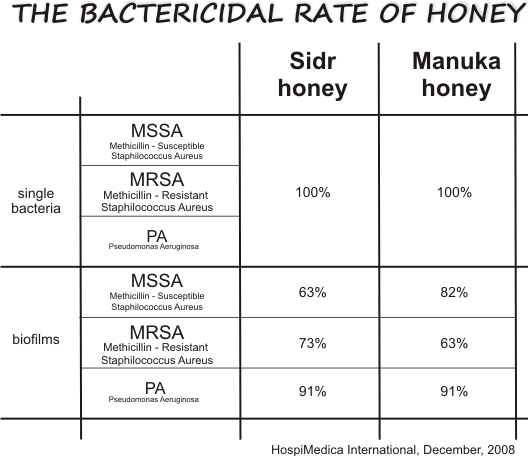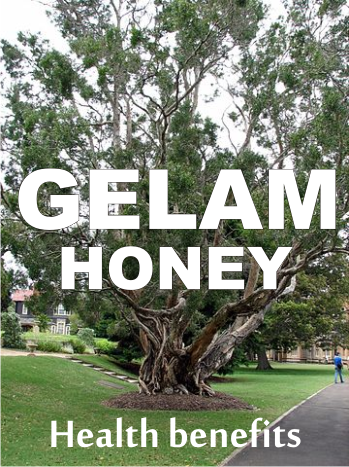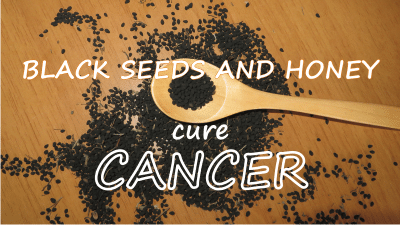Despite tradition and recent scientific research on honey benefits for health, Sidr honey is still surrounded with a lot of doubt, even in the Arab world. It it said that Sidr honey was used in magic and sorcery along with others treatment uses. Yet, their culture says that hundreds of years ago, Sidr honey was given as gift to kings and princes, to express appreciation and loyalty. In India Sidr honey is used with trust to cure eye conditions and clear vision.
Somebody said very beautifully that “every drop of honey holds the spark of life”. It is true for every type of honey we have on Earth. And when we think of specific honeys like manuka, tualang, sidr, which are a little different in their compositions, containing more antioxidants or more metals, or more MGO, than we know for sure that life cannot only be sustained, but also improved.
For years now, the medical world has been researching more closely the natural ingredients our planet offers us, and among all these, honey has gained a very good reputation as pure medicine. All they have to discover now, is what conditions can be treated, in what concentration and in what combination. The rest is up to our nature.
Antioxidant effect
Some honeys are found to have as much as 75-150 mg ascorbic acid per 100g honey, while others, less than 5mg per 100g. Research has found that darker honeys have higher antioxidant properties. In vitro antioxidant activity of Saudi Sidr honey revealed a strong antioxidant activity.
In the study “Attenuation of CCl4-Induced Oxidative Stress and Hepatonephrotoxicity by Saudi Sidr Honey in Rats”, published in Evidence-Based Complementary and Alternative Medicine, in 2013, a study made by Mohammed Al-Yahya, Ramzi Mothana, Mansour Al-Said, et al, sidr honey was tested to determine its antioxidant activity and the phenolic and flavonoidal contents.
The study was undertaken to investigate the possible protective effect of Saudi Sidr honey (SSH) on carbon tetrachloride (CCl4) induced oxidative stress and liver and kidney damage in rats. The hepatorenal protective activity of the SSH was also determined.
Results?
– Honey protected incidence of both liver and kidney lesions.
– It showed a strong antioxidant activity in DPPH and β-carotene-linoleic acid assays. SSH was found to contain phenolic compounds.
– Additionally, the SSH supplementation restored the hepatocytes viability against 2′,7′-dichlorofluorescein toxicity in ex vivo test.
• What’s so special about Sidr tree?
Antibacterial effect
All infections are caused by microorganisms like bacteria or fungi. These days we all know what MRSA is. Or MSSA. They are superbugs, antibiotic resistant, and even got these super-names, like super Japanese racing cars. And there are so many bugs of this kind! We fight them in sinuses infections, or in skin infections or in other internal conditions. Honey has proved its effectiveness in combating them.
Today, having the sinuses inflamed is like having a regular cold. People are accustomed to taking prescription antibiotics for sinus infections, but recent studies have proved that sidr honey (and manuka honey), effectively kills Staphylococcus aureus, the bacterium responsible for respiratory infections.
• HospiMedica International published in December 2008, the article “Bacterial Cause of Chronic Sinusitis Eradicated by Honey”. See the results in the picture below, or read more about this study: How to kill antibiotic resistant bacteria!

If you want to give it try, use a small amount of Sidr honey and dissolve it in your saline nasal wash. Even when Yemeni Sidr honey is diluted very thinly, it still has powerful antibacterial agents that will help you fight away the infection and get you breathing easier. If you don’t like it, then simply irrigate it out with water. There are no side effects.
• Arabs Beekeepers Association during its sixth International Conference has revealed a research conducted at the Faculty of Medicine, University of Aden, in order to study the effect of four types of honey from Yemen (sidr, somor, qasas, and range) on dressing the gluteal and breast abscesses.
The results showed that there was significant difference (P>0.01) between the honeys, on dressing period of gluteal abscesses. The period was shorter (8 days) when treated with sidr honey and longer (13.25 days) with the other types of honey.
• During the same International Conference, there were presented other laboratory experiments conducted by the Department of Plant Protection, Faculty of Agriculture – University of Sana’a, to evaluate the influence of six Yemeni honeys (Sallam, Sidr Wessabi, Sidr Dwani, Flowers, Dwani pasture and Somor) against pathogenic bacteria such as: Salmonella, Escherichia coli, Staphylococcus aureus, Pseudomonas aeruginosa. All of them showed antibacterial activity.
• The Journal of Applied Pharmaceutical Science (Available online at http://www.japsonline.com) published in 2013 the study “Comparative in vivo evaluation of three types of honey on topical wound healing activity in rabbits“, conducted by the Department of Pharmacology and Biochemistry, Faculty of Pharmacy, University of Zawia, Al-Zawia, Libya.
The study concluded that honey in general could be used as a natural topical wound healing agent, comparable to commercial synthetic analogs tested in the study. The research proved that sidr honey is possessing a superior wound healing activity compared to that of thyme honey and spring honey.
Considering its powerful composition, Sidr honey has been reported to be good for:

– liver problems,
– stomach ulcers,
– respiratory infections,
– diseases resulting from malnutrition,
– digestive problems, constipation,
– eye diseases,
– infected wounds and burns, surgical wounds (incl. C-section),
– promote speedy recovery after childbirth,
– facilitates menstruation,
– in combination with various herbs can be used against epilepsy,
– strengthened the immune systems,
– promotes general health and vitality.
Adding Sidr honey to your diet can improve cell health, and thus overall prognosis. Additionally, considering the superior nutrient content of Yemeni Sidr honey, the boost in nutrition alone can help your body fight off illness.

Anti-inflammatory effect
Dr. Aman Ahmed Mohammed Zubair and Dr. Patrick Oukichacoa, from the University of “UCSI” in Kuala Lumpur, Malaysia, have made a recent study “Investigation of Anti-Inflammatory, Antipyretic and Analgesic Effect of Yemeni Sidr Honey”. It proved the effectiveness of Sidr honey in treating inflammation, reducing excessive fever and stabilize activity of the body’s cells, and protect against injury and relieve pain.
Yemeni Sidr honey proved to posses very strong anti-inflammatory, analgesic and antipyretic effects and these effects would be a result of the phytochemicals present.
The study, was conducted on rats and showed that the pharmacological effect of Sidr honey is higher than aspirin and indomethacin.
The study was published in the magazine (World Academy of Medical Sciences, Engineering and Technology) and discussed in a conference held in Paris in 2011, and London in 2011.
Other studies were made at Kuwait Institute for Scientific Research (a governmental research foundation), where several lab examinations were made on Sidr honey to test its qualities and claimed benefits.
NATURAL APHRODISIAC – If we blend sidr honey and carrot seeds, we get an excellent aphrodisiac. Or, we can use other combinations with the same effect: nuts, ginseng and other herbs. These mixtures are claimed to be better than Viagra, with no side effects.
Related articles:
Sidr Honey
![]()
You can buy quality sidr honey from Amazon:
– from Pakistan: Hemani Pure Sidr Honey – Traditional Pack 610 gm, at $36.99 ($60.64 / kg).
– from Yemen: Authentic Yemen Sidr Honey, produced by Yemen Sidr Honey LLC, or Raw Yemeni Royal Sidr Honey of Do’an (500 gram)
The honey that comes from Yemeni is the one highly recommended by consumers!
—————
References:
http://sidrhoney.tripod.com/id12.html;
http://www.hindawi.com/journals/ecam/2013/569037/;
http://www.honey-foryourhealth.com/lets-compare-manuka-honey-to-yemeni-sidr-honey-and-see-which-honey-is-the-best.html;
http://www.islamicbookstore.com/a6060.html



